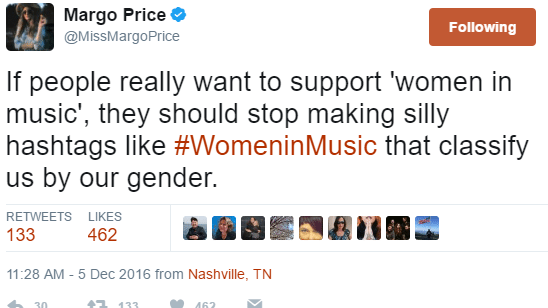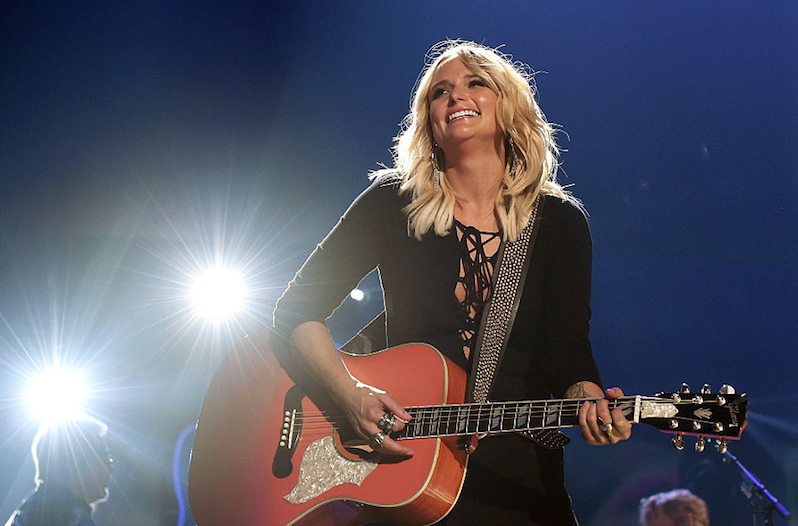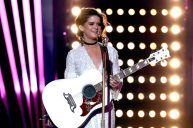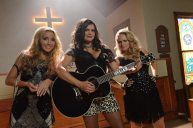[dropcap]I[/dropcap]n 1993, Mary Chapin Carpenter performed her hit "He Thinks He'll Keep Her" as part of the CBS Special Women Of Country. Joining Carpenter onstage were Patty Loveless, Pam Tillis, Trisha Yearwood, Suzy Bogguss, Emmylou Harris and Kathy Mattea. It was a special designated to showcase women in country music, but the women onstage also happened to be superstar artists who had racked up a string of No. 1 hits in the years prior.
Videos by Wide Open Country
The song, written by Carpenter and Don Schlitz, centered around a woman in an unfulfilling marriage. It dealt with real heartache in a fresh way -- classic country for the modern age. The public -- and country radio -- loved it. The song rose to the No. 2 spot of the Billboard Hot Country Songs chart.
https://www.youtube.com/watch?v=S_jItFHLu3o
"He Thinks He'll Keep Her" was no fluke. Three years later, in 1996, twelve of the year's No. 1 country hits were recorded by women. In 2016, female artists reached the number one spot only five times, two of which were duets with established male country artists.
Often today, the only women found on mainstream country radio are the ones riding shotgun in a pickup truck. Of course, country women are more than capable of driving their own trucks, writing their own songs and singing about their own experiences -- and they are doing just that. But you wouldn't know it by listening to the average corporate-owned country music station.
Kacey Musgraves, Brandy Clark, Ashley Monroe, Angaleena Presley and Sunny Sweeney have all released critically-acclaimed records only to receive minimal radio play. Lori McKenna and Natalie Hemby, both accomplished hit-making songwriters, recently released stunning albums filled with what would once be radio-ready singles. But if you turn on your local country station, you're more likely to hear something by Florida Georgia Line featuring the Backstreet Boys.
So what happened? Was '90s country an anomaly -- a golden age for women on country radio? Did public taste change or did radio simply turn its back on female country artists?
Tokens and Tomatoes
When radio consultant Keith Hill remarked that country stations could get better ratings by taking female artists out of rotation, it was the blunder heard throughout Music Row and beyond. Hill referred to men as the lettuce in the salad and women as the tomatoes. "Tomato-gate" was born and it gave a name to what female artists have been experiencing for years. It exemplified the ways in which women in country music are viewed as tokens rather than artists.
In 2015, songwriter Shane McAnally told Billboard, "It's funny when you talk to a publisher in town and they say, 'well, we already have a girl songwriter.'"
Music executive Tracy Gershon echoed the same sentiment to The Tennessean in the wake of Tomato-gate.
"When I was shopping female artists, several labels said, 'We don't sign females,' or, 'We already have too many females and they are too hard to get on radio,' or, 'It is too hard to find songs for females,'" Gershon told The Tennessean. "We had to find proof that that isn't true."
One theory is that today's mainstream country radio simply isn't embracing the traditionally-minded, lyric-driven country music of artists such as Kacey Musgraves. The claim is that it doesn't bring in ratings. But doesn't the immense success of Chris Stapleton prove that country audiences are hungry for more substantial lyrics? In many ways, artists like Musgraves, Clark and Presley have led the traditional country resurgence. But they've yet to find the same success as their male counterparts.
Even Miranda Lambert's The Weight of These Wings, a tour de force in songwriting that went to No. 1 on the country albums charts, has only spawned one Top 5 single. ("Vice" peaked at No. 2 on the charts. The follow-up single "We Should Be Friends" peaked at No. 25.)
The #WomeninMusic Dilemma
Despite probably well-intentioned efforts, slapping a "Women in Music" label on an event doesn't necessarily benefit female artists.
If a female artist had a dollar for every time she was asked what it's like to be a "woman in music," she'd probably be able to self-fund every record she wants to make for the next 50 years.
Margo Price even addressed the #WomeninMusic issue on Twitter:

Price is right. Simply setting aside space (or a hashtag) for women artists isn't enough. Women are writing and creating quality music at the same rate as men. They should already be part of the larger space. They should already be playing on the same stage as the men.
Yet there are still radio programmers who regularly won't play two female artists back to back, something Hill suggested in his tomato diatribe.
If a programmer wouldn't hesitate to play Sam Hunt after Kenny Chesney, why should they worry about playing Miranda Lambert after Carrie Underwood? Does anyone seriously believe the average listener would change the station because of "too many women"?
We know it's rough now, but has it always been harder for women on country radio?
In 1965, women only hit the No. 1 spot twice, including a duet number featuring Priscilla Mitchell. But as artists such as Jean Shepard, Dolly Parton and Loretta Lynn worked tirelessly to break down barriers, things seemed to be improving. In 1975, seven on the year's No. 1 singles were recorded by women. Ten years later, female country artists hit No. 1 nine times.
It may seem bleak now. But it's important to remember a time not so long ago when the playing field was more equal.
The Dream of the 90s
Maren Morris, one of the most successful artists of last year, addressed the sexist double standards facing female country artists in a recent essay.
"You either have to sing about being scorned by a lover or sing about thinking a boy is cute and wanting him to notice you," Morris wrote. "That's about as edgy as you can get."
Most of the mainstream material is a far cry from powerhouse anthems like Martina McBride's "Independence Day" or the quiet brilliance of Patty Loveless' "You Don't Even Know Who I Am." (Both songs were written by singer-songwriter Gretchen Peters.)
Twenty years ago, female country artists were allowed, if not encouraged, to take risks. They sang about real life, real issues. And to borrow a terrible analogy from Keith Hill, they were the tomatoes, croutons, crumbled feta cheese and the lettuce.
Those women who ruled 90s country radio inspired today's crop of singer-songwriters. Just ask Caroline Spence, who championed Mary Chapin Carpenter in a recent Wide Open Country "Rooted in Country" feature.
By not giving women equal air time, radio is ignoring important voices that are essential to the trajectory of country music. These are voices that need to be heard -- not simply because they're women, but because they're artists who deserve recognition. We need them now more than ever.




